Being one of the world’s most widely-spoken languages, Arabic is still considered mysterious by many for its right-to-left script and unique characters. Discovering an interest for Arabic and developing an understanding in it can be as rewarding as it is intimidating, and there are many ways to go about it.
We already have a comprehensive list of the best online courses for learning Arabic as well as a list of the best podcasts for studying the language. In this post, we’ll explore the best apps to help you learn Arabic.
This list includes resources that are available as apps so some quality options may be left out as they simply lack mobile capability.
Do keep in mind that this list doesn’t cover every Arabic language learning app out there. We’ve pulled from the great many apps that we’ve tested ourselves, plus some that are commonly recommended, and grouped them into categories based on what they do best. Hopefully, it will help narrow the field a bit and point you in the right direction to make the choice that best suits your needs.
Table of Contents
Table of Best Apps to Learn Arabic
Links below will send you to the app websites, and the app details are down below.
OVERALL BEST
Best for Developing Communication Skills: Pimsleur
Best Podcast-Style Lessons: ArabicPod101
Best for Feedback on Writing: italki
Best for Egyptian, Moroccan, or Standard Arabic: Glossika
READING AND LISTENING
Best Reading Content: LingQ
Best for Reading Alongside Your Native Language: Beelinguapp
Best Radio App: Radio Arabic
SPEAKING AND WRITING
Best for Speaking Arabic from Day 1: Pimsleur
Best for Writing Practice: Arabic Alphabet, Arabic Letter & Write It! Arabic
Best User-Friendly Way to Learn Grammar and Vocabulary: Drops
Best For Grammar and Vocabulary: Simply Learn Arabic
Most Fun Way to Learn Vocabulary: Memrise
Best Way to Learn Vocabulary From Context: Clozemaster
TUTORS AND LANGUAGE EXCHANGES
Best for Online Tutors: italki
Best for Language Exchange Partners: Tandem
Overall Best Arabic Learning Apps
The apps in this category are our top picks for overall best apps for learning Arabic. Instead of focusing on one or two skills, these apps generally offer a broader education. They can make especially useful options for the beginner Arabic learner, providing a well-structured introduction to the foundations of the language.
Best for Developing Communication Skills
Pimsleur Arabic
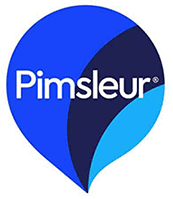
Pimsleur Arabic is one of the most popular and longest-standing resources out there for learning the Arabic language. Its courses place a strong emphasis on aural and verbal communication skills, paying less attention to grammar explanations and reading or writing skills.
See our Super-Detailed Pimsleur Arabic Review
Best Podcast-Style Lessons
ArabicPod101
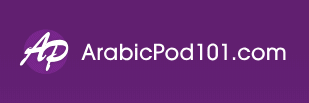
The fact that the lessons are presented as a podcast lands this resource in the best apps for reading and listening category, but it actually provides quality practice in a variety of skills. The ArabicPod101 course manages to be entertaining while delivering valuable grammar, vocabulary, and cultural information via audio lessons.
The app covers a range of levels, from beginner to advanced, but really shines at the intermediate level. There’s a fair amount of English at the beginner level, but it’s replaced by more Arabic as you progress and the material becomes more challenging. There are also videos to keep things engaging and transcripts to maximize the learning potential.
Save 25% with the coupon code ‘ALLLANGUAGERESOURCES‘
See our Super-Detailed ArabicPod101 Review
Best for Feedback on Writing
italki

Similar to pronunciation, writing is a skill in which computers just aren’t that good at providing quality feedback. They can do things like check grammar and spelling, but they aren’t nearly as good as humans when it comes to understanding tone and context.
One great way to get free feedback on your writing from other humans is through the Exercise function in italki’s community features. It allows users to post pieces of writing on any subject that interests them with the goal of getting feedback from another user that’s proficient in the language. A good option for anyone looking for some Arabic-speaking penpals. Right now get a $10 credit with your first purchase.
See our Super-Detailed italki Review
Best for Egyptian, Moroccan, or Standard Arabic
Glossika

Glossika has learning resources for over fifty languages including Arabic.
If you enjoy learning through repetition and speaking, you may enjoy Glossika’s extensive phrase bank.
This resource uses spaced repetition to drill key phrases, then invites you to practice what you’ve learned through dictation and speaking exercises. Don’t worry if you haven’t yet learned the Arabic script, as you can read and type the romanized characters.
Lower intermediates could use the resource to familiarise themselves with sentences in Arabic using Glossika’s intuitive approach. Listening to native speakers and repeating what they say can help learners to improve their comprehension skills and spoken fluency.
See our Super-Detailed Glossika Review
Apps to Learn Arabic Reading and Listening
Reading and listening to Arabic material is very useful if you are looking to improve your Arabic skills. These skills often involve consuming media and we have a few resources that are worth looking at if you want to practice both simultaneously.
Best Reading Content
LingQ

LingQ makes it easier for learners to practice their reading and listening skills in Arabic. It’s easy to look up words you don’t understand as you read, and LingQ keeps track of what you need to lookup. It uses this information to visually represent the parts of the text you aren’t familiar with and to save words for later review.
Much of the content on LingQ is from other sources, and you can upload your own content to practice with. This is one way to make sure that your study materials are something you’re interested in.
The only downsides to this resource are that its extra features are overpriced and that the review function doesn’t work as well as it could. A similar option is Readlang, a browser extension that does many of the same things as LingQ and is available for free, although the Arabic version is still in beta.
See our Super-Detailed LingQ Review
Best for Reading Alongside Your Native Language
Beelinguapp
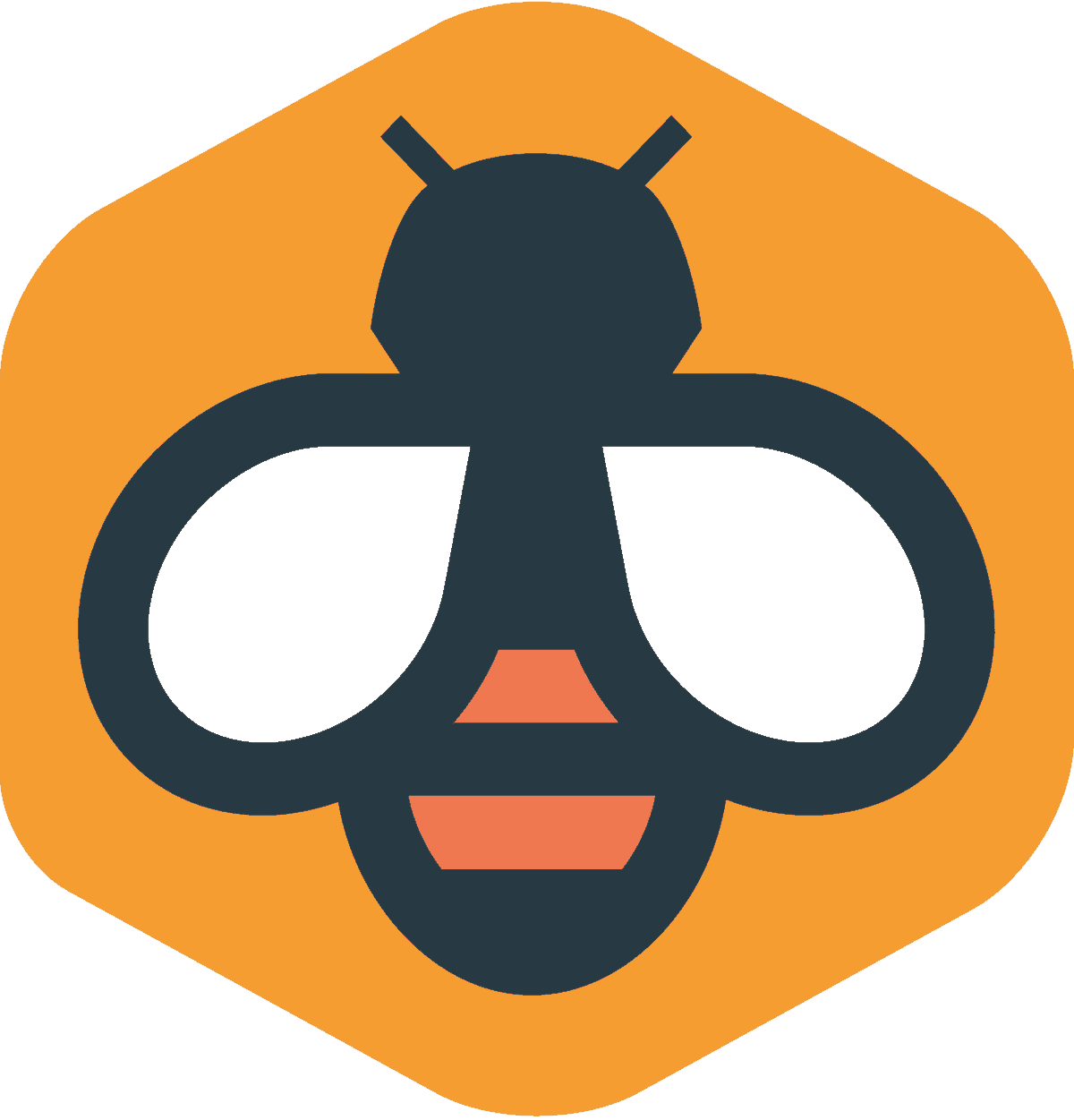
This is another solid option for anyone interested in getting some Arabic reading practice. It’s unique to other apps in that it displays a translation of the text you’re reading in your native language side-by-side with the Arabic version as you read. Easy access to a full translation of the text you’re reading can be much more helpful than single-word translations. It’s also easy enough to hide the translation and only use it when necessary to be sure you don’t rely on it too heavily.
Beelinguapp also has a “karaoke” function, where the text is highlighted as it’s read aloud, providing reading and listening practice at the same time.
Best Radio App
Radio Arabic

This is an app that the advanced learner may find particularly helpful. It’s a collection of over 500 radio stations from 20 different countries. You’ll be able to listen to Arabic music, listen to sportscasts in Arabic, the news, and plenty more. It’s not an app specifically built for language learners, but it’s a great way to increase your exposure to the language in a way that interests you.
Apps for Arabic Speaking and Writing
Speaking and writing, much like reading and listening, are fundamental in language learning. Through speaking and writing in Arabic, you’ll be able to learn and understand how the Arabic language is structured. We have selected Arabic resources that will help you practice these skills.
Best for Speaking Arabic from Day 1
Pimsleur Arabic

Pimsleur Arabic is one of the most popular and longest-standing resources out there for learning the Arabic language. Its courses place a strong emphasis on aural and verbal communication skills, paying less attention to grammar explanations and reading or writing skills.
See our Super-Detailed Pimsleur Arabic Review
Best for Writing Practice
Arabic Alphabet, Arabic Letter
Arabic Alphabet, Arabic Letters will teach you how to write and pronounce Arabic letters through writing guides and audio. You can also create your own custom practice tests offline.
Write It! Arabic
Write it! Arabic will teach you Arabic scripts through writing recognition and use audio by native speakers to familiarize you with proper pronunciation. You can first practice learning to write a small set of characters, then you can test yourself through answering multiple-choice questions and more writing exercises. Similar to Write Me and Scripts by Drops, Write It! doesn’t seem to give much background about each script. However, the creators of Write It! also developed Infinite, which you can use for free to learn and practice beginner words that use your chosen alphabet.
Learn Arabic Vocabulary with Apps
To be able to express yourself effectively while learning a new language, you need to have knowledge of basic vocabulary. A rich vocabulary makes learning and communication in Arabic a lot easier. Have a look at our selected resources for learning and improving your Arabic vocabulary.
Best User-Friendly Way to Learn Grammar and Vocabulary
Drops App
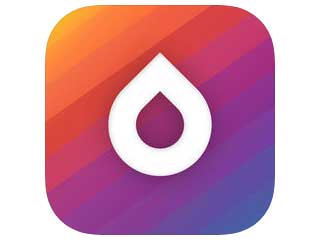
Drops is a phone app for iPhone and Android that covers 33 languages. Daily games test the user on thousands of vocabulary words, and many of these words are ideal for everyday use. Drops has an entertaining, user-friendly interface, but it also lacks grammar lessons, and it works better for some languages than others. For anyone looking to supplement their vocab lessons, this app is worth considering; however, the free version might be more worthwhile than the paid version.
See our Super-Detailed Drops App Review
Best For Grammar and Vocabulary
Simply Learn Arabic
In Simply Learn, by Simya Solutions, you can search for and review over 1000 phrases in over 30 categories. It takes the typical phrasebook app one step further by allowing you to add your favorite phrases to SRS flashcards. Given that its developers also developed Ling, an additional, more comprehensive resource that supports language learning, it seems that Simply Learn is a supplementary app for individuals who need to learn basic phrases for traveling abroad. The creators don’t seem to have intended for people to use this app to learn a language in its entirety, but rather to support them in memorizing basic phrases for travel. Beginners can access the basic cards for free, but the advanced traveler will have to make a one-time purchase to access all the content. If what you truly want is to have a set of phrases under your belt, Simply Learn’s SRS flashcards and native-speaker audio can support you.
Most Fun Way to Learn Vocabulary
Memrise
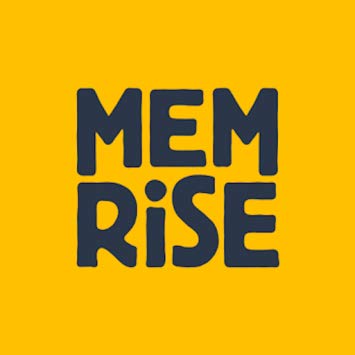
Memrise can be a great way to build your Arabic vocabulary. There’s a ton of content that’s available on the platform for free, and the user-created materials cover just about anything you could want to study. While you’ll be able to choose between several different dialects, it’s important to realize that the quality will vary from deck to deck.
All Memrise decks utilize spaced repetition for efficient practice, and many include images and audio.
The official Memrise Arabic course is especially engaging because it uses native speaker audio and teaches basic grammar concepts. You can sample a fair amount of this material for free as well, but full access requires a paid subscription.
See our Super-Detailed Memrise Review
Best Way to Learn Vocabulary From Context
Clozemaster

There are three main draws for Clozemaster — it’s fun, it’s mostly free, and it teaches new words within context.
There’s nothing professional-feeling about this resource. It’s designed like an 80s arcade game and uses points and levels to keep it from ever feeling like a stale classroom activity. As fun as it may be, it also has its limits. Rather than an app to teach you to speak Arabic fluently, it’ll do a better job of helping you build your vocabulary.
The fact that it presents new words in the context of a sentence should give you a more complete understanding of the word as it’s actually used. Overall, this app offers some good practice for free, especially if you like the aesthetic.
See our Super-Detailed Clozemaster Review
Tutors and Arabic Language Exchange Apps
Are you looking for a tutor to help you in your Arabic learning journey? Or a language exchange partner? Whichever fits you best, we have a resource that caters to it.
Best for Online Tutors
italki

Similar to pronunciation, writing is a skill in which computers just aren’t that good at providing quality feedback. They can do things like check grammar and spelling, but they aren’t nearly as good as humans when it comes to understanding tone and context.
One great way to get free feedback on your writing from other humans is through the Exercise function in italki’s community features. It allows users to post pieces of writing on any subject that interests them with the goal of getting feedback from another user that’s proficient in the language. A good option for anyone looking for some Arabic-speaking penpals. Right now get a $10 credit with your first purchase.
See our Super-Detailed italki Review
Best for Language Exchange Partners
Tandem
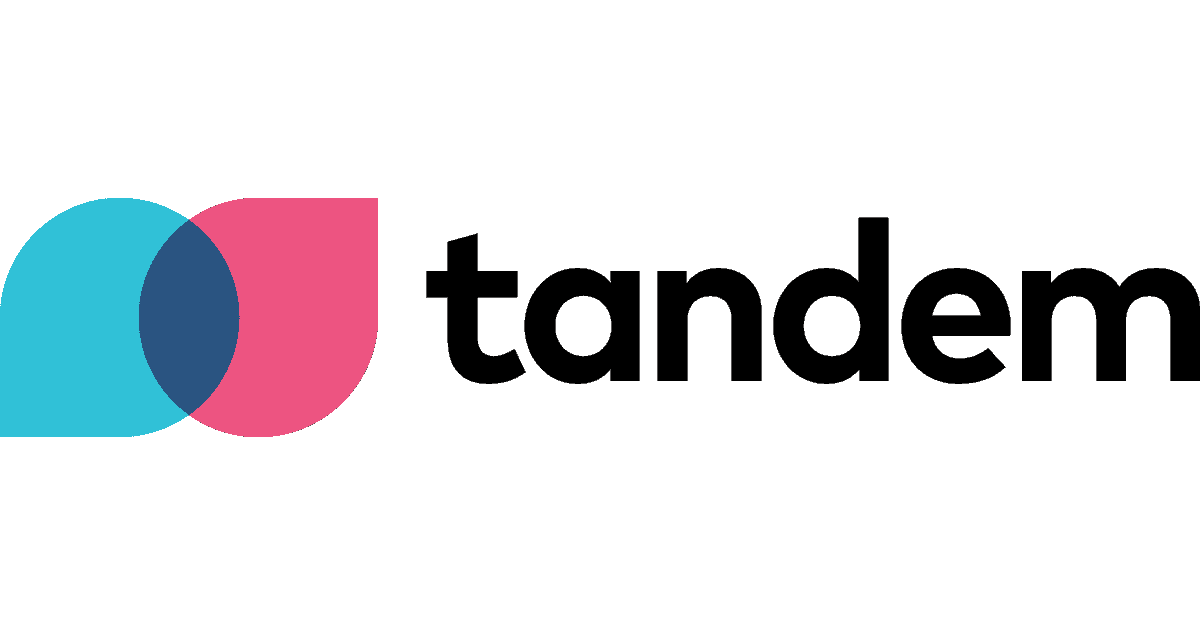
Apps like Tandem and HelloTalk work really well for finding language partners, and they both offer a lot for free. The idea behind them is that you’ll find someone to teach you their language in exchange for teaching them yours. This happens through text or voice conversations where you’ll have the opportunity to offer corrections for each other. Both apps also include a built-in translation tool to make it easier to communicate, but you’ll have to pay for unlimited translations.
Tandem also offers a tutoring service apart from its chat capabilities and language tools. The app is sleek and refined when it comes to aesthetics.
See our Super-Detailed Tandem Review
Maybe Try These Arabic Learning Apps
A lot of Arabic courses and programs are now available and accessible through apps. Here are a few more apps to aid in your Arabic learning journey. For more information on the numerous options available for learning Arabic, check out our post about the best Arabic courses.
Rocket Arabic
Rocket Arabic is a bit expensive for what it offers — audio lessons are uninspiring, and it’s really only viable for absolute beginners.
See our Super-Detailed Rocket Arabic Review
Transparent Language
Transparent Language can be very helpful in Arabic learning, especially with less studied dialects of Arabic.
See our Super-Detailed Transparent Language Review
Busuu
The format of the lessons on Busuu is really nice and makes for a good user experience, but the Arabic course lacks depth. If you’re going to pay, there are better options for your money. The social feature is especially nifty and free to use.
See our Super-Detailed Busuu Review
Language Transfer
This audio course serves as a great way to build a foundation in Arabic — for free. The app is available without ads or price tag and offers 38 lessons for learners looking to get started with the language. Advanced learners may not find it useful, and there aren’t any bells or whistles, but the instruction is quality.
See our Super-Detailed Language Transfer Review
Mango Languages
This one’s got some engaging content and is easy to use, but it’s really only an introduction to the language. It’s a viable option for absolute beginners looking to get acquainted with Arabic.
See our Super-Detailed Mango Languages Review
Mondly
Just about any search for a language learning app is going to bring up Mondly, but its prevalence isn’t an indication of quality. It isn’t clear what type of Arabic the app teaches, there are no in-depth grammar explanations, and no cultural information — you’re better off somewhere else.
Spring Sale! Get 96% off Lifetime Access to Mondly Premium, plus bonus access to Mondly AR & Mondly Kids! See details on the website. Offer ends on 4/30/24.
See our Super-Detailed Mondly Review
Udemy
Udemy is an online marketplace for a wide variety of online courses, including some for students of Arabic. The courses are frequently offered at massive discounts, so it’s worth keeping an eye out for sales.
Best Free(mium) Apps for Learning Spanish
If you’re on a budget, check out our Bargain Basement options where you can find the best free or freemium apps to learn Arabic.
Best Free Way to Get Started
Madinah Arabic

This app is especially exciting for all of the free content it offers. There are currently two Madinah Arabic courses: Arabic Reading and Arabic Language. The Arabic Reading course is, of course, designed to get you reading in Arabic. It starts with the basics, teaching the names and pronunciation of each letter in Arabic. It might not be the most engaging way to learn to read, but it’s thorough and free.
The Arabic Language course is made up of over 100 lessons and includes audio clips, short videos, and review quizzes. The lessons build on each other logically, making it easy to find material for your level.
Madinah Arabic also provides optional access to Arabic tutors, but they are more expensive than on resources like italki. This app is currently only available in the Apple App Store.
Most Customizable Way to Practice Vocabulary
Anki

This flashcard app is as customizable as it is powerful. Its stripped-down style won’t win any fashion awards, but it makes up for it in usefulness. Its potential for customization makes it popular among not just language learners but learners of really anything.
If you have any interest in designing your own SRS study materials for Arabic, Anki will help you do just that. You can make standard flashcards, cloze deletion cards, add images and audio, and use tags. If you don’t want to spend time creating your own deck, check out the pre-made Arabic options. The Anki app is free to use on Android, $25 in the Apple App Store.
Best Dictionary App
Hans Wehr

This is the mobile version of the legendary Hans Wehr Arabic-English Dictionary, widely considered to be the best of its kind. A quality dictionary resource is indispensable, and this is one you can trust.
While the dictionary is of top quality, it does require a basic understanding of Arabic to use. You can search for a word by entering the root of the word using an Arabic keyboard (installed separately) or by searching the romanized equivalent.
Best for Trying Out The Language Exchange App
HelloTalk
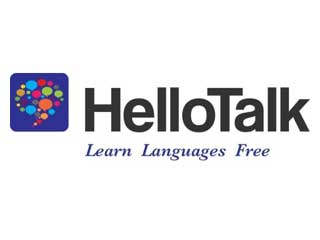
HelloTalk is a popular app that makes it incredibly easy to find a language learning partner just like Tandem. Its free version is all most people will need, although it limits the number of translations you can use in a day.
Compared to Tandem, HelloTalk has a style that’s a little more lighthearted and cartoony, but both apps work really well.
See our Super-Detailed HelloTalk Review
Best for Help with Random Questions
HiNative
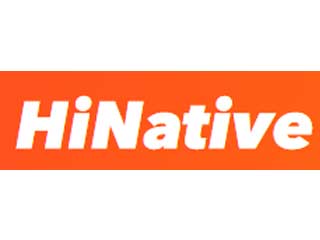
Learning a new language involves an endless stream of questions. Many of them you can answer with a dictionary, language book, or internet search, but there are some that are best answered by a native speaker.
HiNative is a Q&A app that connects language learners with questions and native speakers with answers. It’s very easy to use — posting a question on the site makes it public for anyone proficient in Arabic to answer. The community is large, so you should receive an answer quickly.
The basic functions of the app are free, but you can pay for the ability to record yourself speaking and listen to the audio of others. You won’t learn the entire language on HiNative, but it’s a great tool for the odd question.
See our Super-Detailed HiNative Review
edX

edX is an online learning platform that offers free university courses. A certificate is usually available upon completion for a fee. The platform offers the structure and quality you can expect from a university course while allowing learners to progress at their own pace. Course topics vary widely; take one of the various Arabic language courses or one on another topic that’s taught in Arabic.
Coursera

Coursera offers online courses from universities around the world, open for registration at any time, and self-paced. Advanced learners can take courses on many different subjects taught in Arabic, and others will be able to find courses teaching the language. Courses are free, and most offer a certification upon completion if you’re willing to pay.
Good Freemium Arabic App for Writing, Pronunciation, Speaking, Listening, and Vocabulary
FunEasyLearn

Not only does FunEasyLearn have a slick app interface, high-quality recordings of native speakers, and a variety of activities to reinforce your learning, but it also allows you to learn from 61 mother tongues. The lessons were developed by a team of certified linguists and acting teachers; they cover reading, listening, speaking and writing. You have the choice of learning individual vocabulary or common phrases, both of which navigate between various common categories such as “Describing people”, “General Conversation”, “ and “Transport”. Ultimately, FunEasyLearn is a fun and easy way to develop some basic vocabulary, but it is probably not the most effective resource for hard-core language learners; you will need to use another resource if you want to learn more than basic vocabulary words.
So, What is the Best App for YOU to Learn Arabic?
Whatever your level in Arabic and whichever dialect you’re interested in, you shouldn’t have too much trouble finding some good apps to help you learn.
A lot of these apps are of great quality and can help in your progress, but note that an app alone isn’t enough to reach fluency in a language. That said, they can make stellar supplements to your study plan and are definitely worth looking at.
If you still want to see what other Arabic learning resources are available, we’ve also written about the best online courses for learning Arabic and the best podcasts. And, if you crave great tips on how to learn Arabic best, read our “Best Way to Learn Arabic” post.

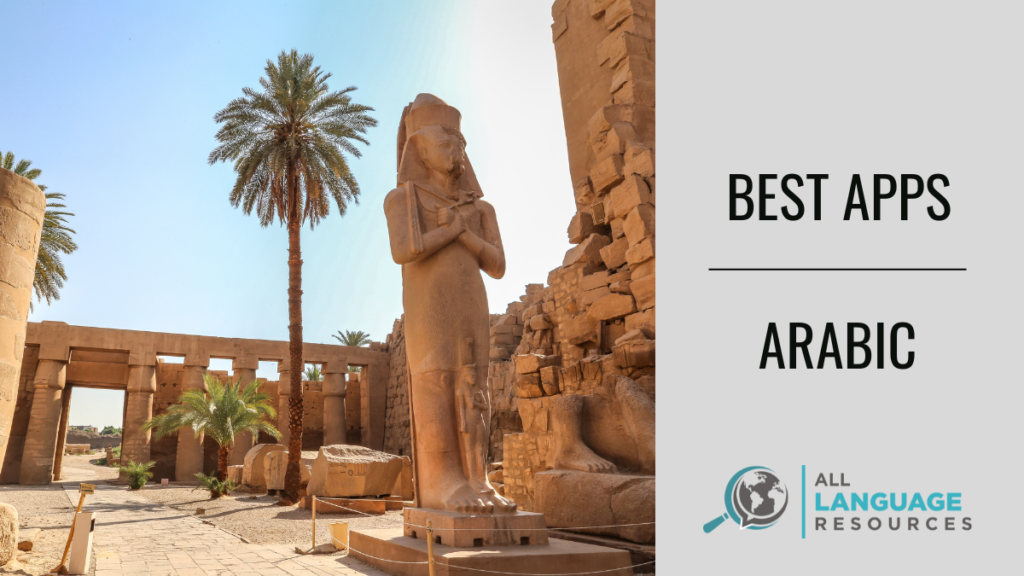
Hey Tamkin!
Your first step is to determine which dialect you want to study. MSA, Egyptian, Maghrebi, etc. Many language programs that do not specify the dialect are almost always teaching MSA.
Good luck!
I want to study Arabic language